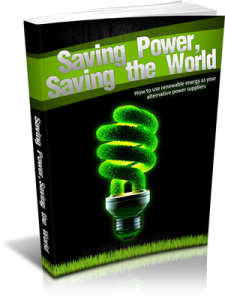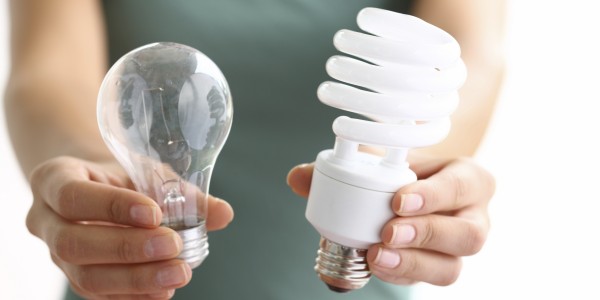You may not think much of leaving that USB cable in the outlet after your phone has charged, but energy efficiency is smart. Real smart. I’m talking improves-the-quality-of-life smart. Not only does it save you money—potentially a whopping 20 to 30 percent—but did you know that energy efficiency is good for the environment, improves the economy, and improves national security? And the great part about it is: saving energy is easier than you think. The average U.S. household spends anywhere between $2,000-$5,000 a year on energy. Think of what you could be doing with all that extra cash and all because of some simple tweaks you made around the house.
First, lets distinguish the difference between energy efficient and energy conservation. Energy efficiency means to provide the same service while using less energy. For example, replacing an incandescent light bulb with an LED bulb (light-emitting diode) will require much less energy, produce the same amount of light, and last longer. Energy conservation is reducing or going without a service to save money. So instead of swapping out a traditional bulb for an LED, you would simply shut off the light all together. Both are great options to reduce greenhouse gas emissions.
Why Save Energy?
You may ask yourself, “Why should you bother making change?” For starters, lets talk economy. People love talkin’ about the bad economy. Bad economy this, bad economy that. But we could be taking part in making it better. From an Energy Education Specialist to Solar Energy Engineer, energy efficiency projects like building improvements and repairs create jobs. In 2010 alone, energy efficiency accounted for more than 830,000 jobs nationwide. When it comes to the environment, using less energy saves precious natural resources and cuts down on pollution. Everything from power plants to cars consume energy and can produce emissions that harm our environment. Then there’s the whole national security thing. Using less of America’s energy resources, like oil, creates independence so we don’t need to depend greatly on foreign nations. Energy efficiency also means keeping our troops safer. Soldiers are killed during battleground supply missions refueling convoys. In 2011 there were 1,100 attacks on fuel convoys. Using electric and hybrid vehicles, and energy-efficient generators would mean fewer convoys, which would result in less casualties.
Now that we got why you should be doing it out of the way…lets take a look at some tips that will save energy through more efficient use of your dishwasher, refrigerator, freezer, and other common household appliances:
Get Your Free E-Book

This Book Is One Of The Most Valuable Resources In The World When It Comes To How To Use Renewable Energy As Your Alternative Power Suppliers!
 We value your privacy and would never spam you
We value your privacy and would never spam you
Get Your Free E-Book

This Book Is One Of The Most Valuable Resources In The World When It Comes To How To Use Renewable Energy As Your Alternative Power Suppliers!
![]() We value your privacy and would never spam you
We value your privacy and would never spam you
Energy Saving Lighting
- Replace at least 5 lights with energy efficient light bulbs. LED lights can increase your saving significantly and lasts 6x longer than incandescent light bulbs.
- For outdoor lighting, use motion-detector lights—they’re convenient and efficient
- Install fluorescent tubes to light your workshop or playroom
Take Advantage of Sunlight
- During winter months, take advantage of the sunlight by opening your curtains during the day. This allows the sun to heat your home naturally. In the summer, use light-colored window shades or blinds to reflect heat back outside.
Dishwasher
- Check manufacturer’s recommendations in the manual for water temperature
- Scrape large food pieces instead of rinsing
- Never overfill your dishwasher
- Rinse Hold uses 3-7 gallons of hot water each use; avoid it
- Let dishes air dry
- When purchasing a new dishwasher, look for energy star label
Refrigerator
- Don’t keep the ‘fridge too cold
- Recommended 35-38°F for the fresh food compartment and 0ºF for the freezer
- Make sure your refrigerator door seals are airtight
- Frost buildup decreases the energy efficiency of the unit. Don’t allow frost to build up more than one-quarter of an inch
- Uncovered foods release moisture and make the compressor work harder so make sure to wrap foods and cover liquids
In The Kitchen
- Look for a natural gas oven or range with an automatic, electric ignition system, which saves gas since a pilot light is not burning continuously
- When it comes to gas appliances; yellow flames indicate the gas is burning inefficiently and an adjustment may be needed ( you want the flame to be blue)
- Clean range-top burners reflect the heat better, saving energy
- A toaster or convection oven uses one-third to one-half as much energy as an oven or stove, so a toaster/ convection oven is best used for small meals
Programmable Thermostat
- You can save an estimated 10% per year on heating and cooling costs with a programmable thermostat
- Reset when you’re away from home or asleep
Electronics
- Charges continuously draw energy even when they’re not connected to a device; unplug chargers when not in use
- Laptops use less energy than desktops
- Plug electronic devices into a power strip and turn it off when it’s not in use
- During inactivity, set your computers to sleep or hibernate mode
Water Heating
- Set water heater no higher than 120 degrees
- Install low-flow shower heads or temperature sensitive shower valves
Looking to achieve even more savings? You may consider having a qualified professional make recommendations on how to improve overall energy efficiency or you can get professional energy audit.








